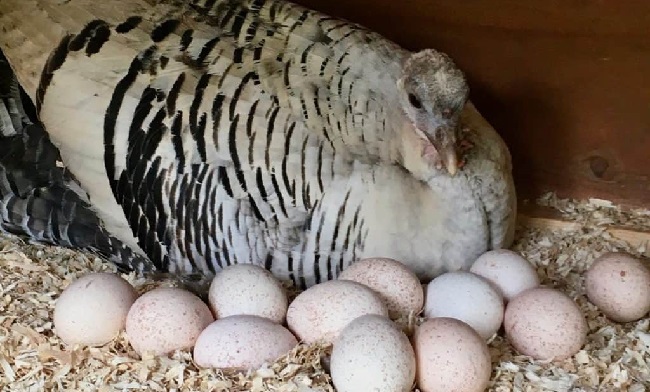Turkeys, known for their iconic presence at Thanksgiving dinner, also hold an interesting place in the world of poultry keeping. A question often asked by hobbyists, farmers, and bird enthusiasts is, “How Many Eggs do Turkeys Lay?”
This comprehensive guide aims to answer this question in detail, shedding light on Turkey Egg-Laying patterns, the factors influencing their Laying habits, and the differences between wild and domestic Turkey reproduction.

Turkey Egg-Laying Patterns
A female Turkey, also known as a hen, starts Laying Eggs at around seven months of age. A domestic Turkey hen generally Lays anywhere from 80 to 100 Eggs per year, while wild Turkeys typically Lay 10-15 Eggs per year. This stark difference is due to selective breeding by humans for increased Egg production.
Read Also:
The Breeding Season
Turkeys are seasonal breeders, and their Egg-Laying activity is closely tied to daylight hours. In the northern hemisphere, the Laying season usually starts around late February or early March and continues until July or August. During this period, a Turkey hen can Lay one Egg approximately every other day until she has a full clutch.
Clutch Size and Incubation
A clutch is the total number of Eggs that a Turkey hen Lays in one nesting period. For domestic Turkeys, a clutch usually consists of 12-15 Eggs, while for wild Turkeys, it averages around 10-12 Eggs. Once the hen has laid all the Eggs in her clutch, she starts incubating them by sitting on the nest. The incubation period lasts about 28 days.
Factors Influencing Egg Production
Several factors can influence How Many Eggs a Turkey Lays. These include breed, diet, health, age, and environmental conditions. Adequate nutrition, a safe and comfortable environment, and proper healthcare are essential for optimal Egg production.
Differences between Wild and Domestic Turkeys
Wild Turkeys Lay fewer Eggs than domestic Turkeys due to the challenges of life in the wild, including predation, scarcity of food, and harsh weather conditions. On the other hand, domestic Turkeys have been selectively bred for higher Egg production and are given optimal conditions for Laying.
Breeds and Egg Laying
Not all Turkey breeds are created equal when it comes to Egg-Laying. Commercial breeds like the Broad-Breasted White are focused more on meat production and may Lay fewer Eggs than heritage breeds such as Bourbon Reds or Narragansett Turkeys.
Understanding the Laying capabilities of different breeds can be helpful if you’re considering raising Turkeys for Eggs.
Turkey Eggs Vs Chicken Eggs
Turkey Eggs are generally larger than chicken Eggs and have a slightly pointed end. They are speckled and have a thicker shell and membrane, which makes them less prone to breakage. Turkey Eggs also have a richer taste due to higher fat content, making them a delicious alternative to chicken Eggs.
Nesting Habits of Turkeys
Unlike chickens, Turkeys prefer to nest on the ground. Turkey hens are excellent mothers and will diligently incubate their Eggs and care for their poults once they hatch.
In captivity, it’s crucial to provide a safe, comfortable nesting area to encourage Laying and prevent Egg loss due to predation or accidental damage.
Health and Diet Influence Egg Production
A Turkey’s diet pLays a vital role in Egg production. A balanced diet with sufficient protein, calcium, and essential nutrients is necessary for consistent Egg Laying.
Likewise, the health of the Turkey affects its ability to Lay. Parasites, diseases, or stress can decrease Egg production and impact Egg quality.
Understanding the Market for Turkey Eggs
While not as commonly consumed as chicken Eggs, there’s a niche market for Turkey Eggs, especially among gourmet chefs and food connoisseurs. Due to their rarity, Turkey Eggs can fetch a higher price, making Turkey Egg production a potentially profitable endeavor.
Read Also:
Conclusion
Understanding How Many Eggs Turkeys Lay requires a comprehensive understanding of their breeding patterns, the influence of environmental factors, and the differences between wild and domestic Turkeys.
Whether you’re a poultry farmer, hobbyist, or a curious learner, knowing about Turkey Egg production can enhance your knowledge about these fascinating birds.
From the rhythms of nature to the effects of selective breeding, the journey of each Turkey Egg reflects a remarkable interpLay of biology and environment.
























